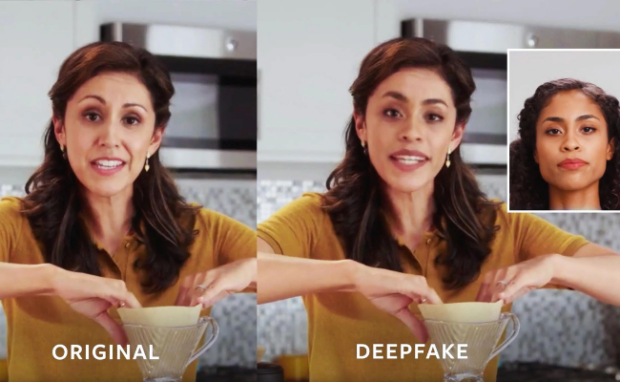Google CEO warns about AI deepfake videos
Google CEO Sundar Pichai shared a dire warning about the dangers of AI deepfake content. His statement came during an interview with CBS News’ “60 Minutes” host Scott Pelley. Pichai said, ‘On a societal scale, it can cause a lot of harm.” Also, he added, “Does that keep me up at night? Absolutely.”
Many people think of ChatGPT when generative AI comes to mind. Despite sparking the AI trend worldwide, it is not the only generative program available. Its parent company, OpenAI, ushered a technological revolution we cannot undo. However, understanding these tools will enable us to maximize their benefits and mitigate risks.
This article will elaborate on Sundar Pichai’s interview regarding the encroaching risks of AI deepfakes. Then, I will cover other AI deepfake issues and how we could guard against their negative effects.
What did the Google CEO say about AI deepfakes?
Is AI developing at such a fast pace that society might not be able to adapt, or is the future of AI being taken as seriously as the technology is being developed? Google CEO Sundar Pichai weighs in. https://t.co/lQQn0wIFJE pic.twitter.com/ZSCq0ZcI9j
— 60 Minutes (@60Minutes) April 16, 2023
Sundar Pichai discussed the potential problems with AI deepfakes with 60 Minutes host Scott Pelley. He warned using artificial intelligence to create fake videos of public figures will become “easy.” Here’s a snippet of their exchange from CBS News:
“It will be possible with AI to create, you know, a video easily. Where it could be Scott saying something or me saying something, and we never said that. And it could look accurate. But you know, on a societal scale, you know, it can cause a lot of harm.”
Pelley asked, “Is Bard safe for society?”
“The way we have launched it today, as an experiment in a limited way, I think so. But we all have to be responsible in each step along the way,” the Google CEO answered.
Pelley clarified, “You are letting this out slowly so that society can get used to it?”
“That’s one part of it. One part is also so that we get the user feedback. And we can develop more robust safety layers before we build before we deploy more capable models,” Pichai explained.
Next, the Google CEO clarified Google does not always fully understand the answers its Bard AI provides. For example, Pichai said his company’s program taught itself Bengali despite not training in that language.
You may also like: OpenAI CEO testifies in first-ever AI Senate hearing
Then, Pelley asked, “You don’t fully understand how it works. And yet, you’ve turned it loose on society?”
“Yeah,” said Pichai. “Let me put it this way. I don’t think we fully understand how a human mind works either,” Pichai added.
This AI tendency is called the “black box problem.” it refers to the phenomenon where a creator does not fully understand how their projects work.
What are the risks of AI deepfakes?

Photo Credit: technologyreview.com
Deepfake content refers to videos, images, and other media that use the likeness of various people without consent. For example, award-winning rapper Nicki Minaj tweeted her shock after seeing her AI-generated video with actor Tom Holland.
Some can be harmless and silly, but most are more insidious. Unfortunately, people have been inserting women’s faces into pornographic deepfakes without permission.
You may also like: Nicki Minaj shocked by her AI deepfake video
As the Google CEO said, these risks would likely grow due to generative AI. Tools like ChatGPT, DALL-E, and VALL-E enable most people to create compelling content within seconds.
They don’t require video-editing skills. Instead, anyone can get realistic results after submitting a short description and a few free online samples. For example, AI presidents briefly became trending online.
It featured the voices of President Joe Biden and past US leaders in funny situations, such as creating tier lists for PRIME energy drink flavors and playing Minecraft. Conversely, the New York Post reported an eerily-realistic deepfake debate between President Joe Biden and former President Donald Trump.
Conclusion
Google CEO Sundar Pichai warned about the impending danger of online deepfakes. He said generative AI could make creating fake clips of public figures easier for everyone.
We cannot undo the rise of generative artificial intelligence. Instead, we must understand its capabilities to harness them for humanity’s progress.
More importantly, further understanding will let us mitigate its risks. You can learn more about artificial intelligence and other digital trends at Inquirer Tech.